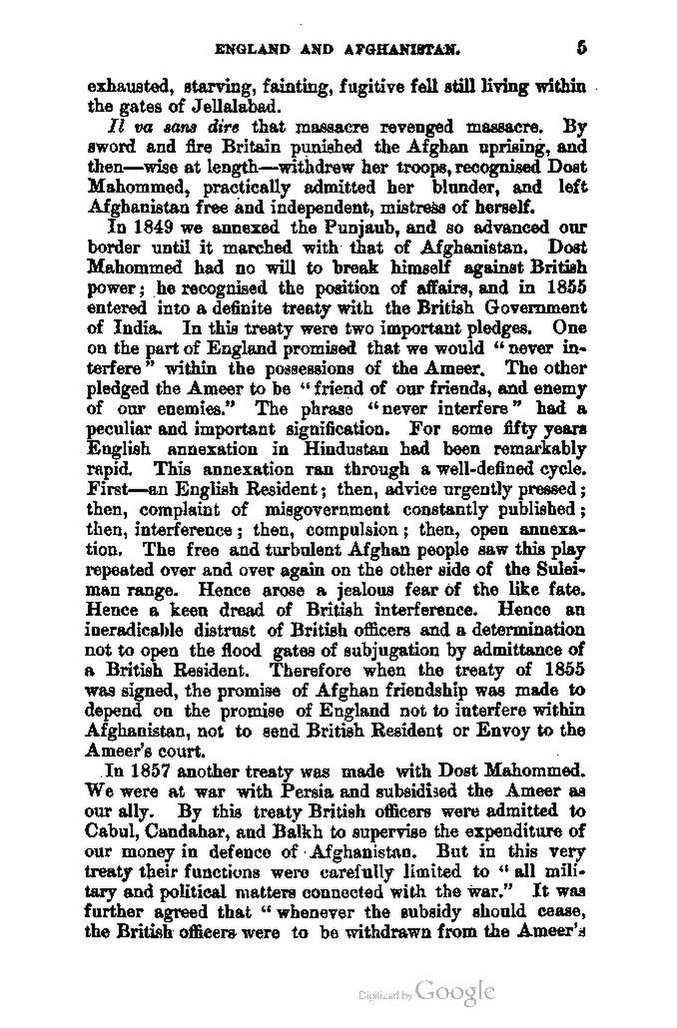exhausted, starving, fainting, fugitive fell still living within the gates of Jellalabad.
Il va sans dire that massacre revenged massacre. By sword and fire Britain punished the Afghan uprising, and then—wise at length—withdrew her troops, recognised Dost Mahommed, practically admitted her blunder, and left Afghanistan free and independent, mistress of herself.
In 1849 we annexed the Punjaub, and so advanced our border until it marched with that of Afghanistan. Dost Mahommed had no will to break himself against British power; he recognised the position of affairs, and in 1855 entered into a definite treaty with the British Government of India. In this treaty were two important pledges. One on the part of England promised that we would "never interfere" within the possessions of the Ameer. The other pledged the Ameer to be "friend of our friends, and enemy of our enemies." The phrase "never interfere" had a peculiar and important signification. For some fifty years English annexation in Hindustan had been remarkably rapid. This annexation ran through a well-defined cycle. First—an English Resident; then, advice urgently pressed; then, complaint of misgovernment constantly published; then, interference; then, compulsion; then, open annexation. The free and turbulent Afghan people saw this play repeated over and over again on the other side of the Suleiman range. Hence arose a jealous fear of the like fate. Hence a keen dread of British interference. Hence an ineradicable distrust of British officers and a determination not to open the flood gates of subjugation by admittance of a British Resident. Therefore when the treaty of 1855 was signed, the promise of Afghan friendship was made to depend on the promise of England not to interfere within Afghanistan, not to send British Resident or Envoy to the Ameer's court.
In 1857 another treaty was made with Dost Mahommed. We were at war with Persia and subsidised the Ameer as our ally. By this treaty British officers were admitted to Cabul, Candahar, and Balkh to supervise the expenditure of our money in defence of Afghanistan. But in this very treaty their functions were carefully limited to "all military and political matters connected with the war." It was further agreed that "whenever the subsidy should cease, the British officers were to be withdrawn from the Ameer's
